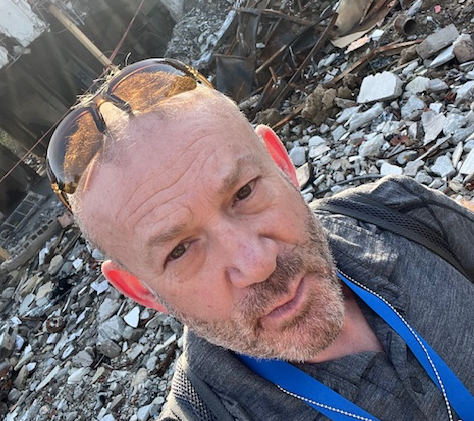
Talking Israeli Politics in the Bay Area
November 12, 2010
Uncategorized
Though Fred Lazin made aliyah in 1975, he says the older he gets the more American he feels.
It’s not because the Boston native misses his beloved New England Patriots. During football season, he still gets to watch the team on Israeli television — in the middle of the night, of course.
It might have more to do with his practiced eye as a political scientist. He is an Israeli who studies his own society — but being a scientist, he is a bit detached.
Plus, he visits the United States all the time. Right now, he’s in Washington, D.C., for several months as a visiting scholar at American University’s Center for Israel Studies.
Lazin was in the Bay Area recently as a guest of American Associates, Ben-Gurion University. He serves as a professor of local government in the department of politics and government at BGU — sounds like a mouthful, but basically, he analyzes Israeli government.
He likes to compare and contrast American and Israeli politics. To understand America, he says, one must first grasp the federalist system underlying the Constitution. But in Israel, he says, “it’s all about coalition politics.”
He cites as one high-profile example, the strange bedfellows in the Cabinet of Israeli Prime Minister Benjamin Netanyahu. Because of the necessity to form coalitions, Netanyahu asked Avigdor Lieberman of the far-right Yisrael Beitenu party to become foreign minister.
At least, officially.
“They let [Lieberman] go to Moscow,” Lazin says. “But everyone in the world knows when it comes to foreign affairs, there’s Bibi [Netanyahu] and [Defense Minister Ehud Barak]. They split the job between them.”
Because of coalition politics, Israeli society sometimes frays, such as with the ongoing disputes about Jewish conversion and answering the question: Who is a Jew?
“The issue with Israeli Jews is religion,” Lazin says. It’s Orthodox vs. Orthodox, or Orthodox vs. everyone else.”
As far as geopolitics and U.S.-Israeli relations, Lazin acknowledges that President Barack Obama is not as popular in Israel as past commanders in chief, because he is perceived as less supportive of Israel. But the professor also notes that George W. Bush, who was very pro-Israel and once popular among Israelis, is not so well liked anymore.
“About a year before [Bush] finished office, all of a sudden there were second thoughts among Israelis,” Lazin notes. “They realized Iran is building a bomb. Iran is a serious threat. Why all of a sudden is Iran so much stronger? People put two and two together. America took out Saddam Hussein, who was a moderate check on Iran. So who put us in this mess? George W. Bush.”
Lazin hails from Sharon, Mass., a working-class Boston suburb. His involvement with Young Judaea as a youth sparked his Zionism, and after completing his postgraduate degrees, he made aliyah.
At Ben-Gurion, he established a program in urban studies and the department of general studies. He chaired the department of behavioral science and served as the director of the Hubert H. Humphrey Center for Social Ecology and the Overseas Student Program.
Lazin has taught at Hebrew University, NYU, UCLA, Cornell and Tufts. He has authored more than 60 scholarly articles and has written 10 books dealing with public policy in the United States, Israel and developing countries; Israeli politics and society; and Jews in American politics.
With all his traveling, Lazin has a good sense of how Israel is perceived around the world. He doesn’t buy in to the notion that Israel is seen more and more as a pariah state in some quarters.
“In [Israel’s] economy today it’s vital to have links with the rest of the world,” he says. “If we burn our bridges and become a pariah, we have no economy. We might lose a few battles, but we seem to be winning in other places.”



